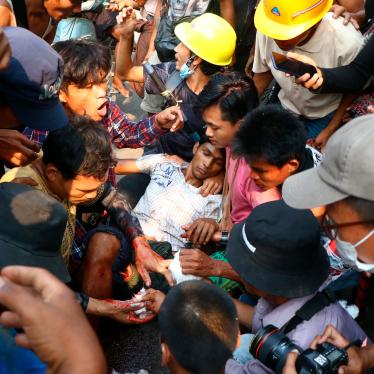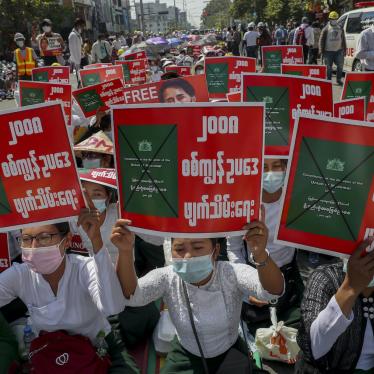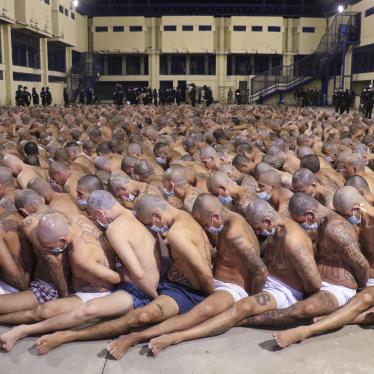Myanmar’s military junta declared martial law in 11 townships across Yangon and Mandalay on Sunday, after a bloody 24 hours in which security forces killed at least 74 people and unidentified persons set fire to several dozen Chinese-owned factories. The ruling State Administration Council purportedly transferred all executive and judicial power to the regional military commanders of those two cities.
Under Martial Law Order 3/2021, issued on March 15, charges under many of the laws being used to prosecute peaceful protesters and journalists will now be tried by military courts in the areas under martial law. This all but ensures legal proceedings that will deprive many of those charged for peaceful opposition to military rule of their basic fair trial rights, including the right to appeal.
Military tribunals in Myanmar have a long and troubling history. Past trials were usually conducted behind closed doors, inside Yangon’s main prison, where the rules of evidence and procedure applicable in civilian courts did not apply. Those on trial in military tribunals face almost certain conviction regardless of the validity of the charges against them, and the trials are held outside the scrutiny of the public or the international community.
Defendants also face significantly higher penalties than they would in civilian court. Martial Law Order 2/2021 specifies that those convicted shall be sentenced to death, prison at hard labor for unlimited years, or the highest punishment designated for the crime in existing law.
All tribunal decisions are “final,” meaning there is no right to appeal a conviction, sentence, or the process of a trial. The only exception regards death penalty sentences. The final word on those decisions lies with the military commander-in-chief, Sr. Gen. Min Aung Hlaing, a man who has been sanctioned by the United States, European Union, United Kingdom, and others for his involvement in serious human rights abuses.
Even those facing trial in civilian courts since the February 1 coup have legitimate concerns about judicial independence and fair trial proceedings under Myanmar’s junta. But those now facing trial in military tribunals can be certain of one thing: there will be no justice.










